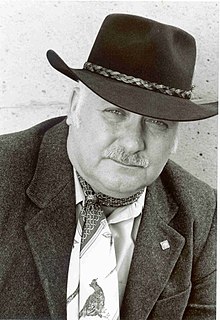A Quote by Rutger Bregman
I know that there are many excellent arguments for a universal form of basic income. Since everyone would get it, it would remove the stigma that dogs recipients of assistance and 'entitlements'.
Related Quotes
Many people believe in eliminating gaps and eliminating poverty. They don't realize that in some sense those two things are antithetical. If you were to double everyone's income, or if everyone's income were doubled naturally over the course of time, then you would reduce poverty significantly but you would have also increased the gap.
Firms would be given initial entitlements to gross markup on the basis of past performance, adjusted by changes in labor and capital inputs. This is somewhat similar to the definition of normal profits under some versions of the wartime excess -profits tax. Entitlements would be transferable and a competitive market established.

































